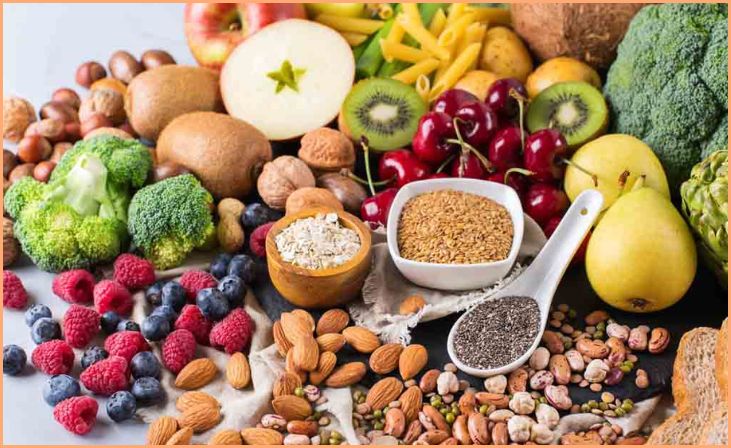Quality sleep is crucial for overall well-being, and what you eat before bedtime can significantly impact your sleep patterns. Getting a good night’s sleep is essential for overall health and well-being. However, certain foods can have a significant impact on the quality of your sleep. In this blog post, we will explore the foods that can affect your sleep and should be avoided before bedtime.
From caffeinated beverages to heavy and spicy meals, these foods can disrupt your sleep patterns and make it difficult to fall asleep or stay asleep. This blog explores the connection between food choices and sleep, helping you make informed decisions to promote a restful night. By being mindful of your food choices in the evening, you can promote better sleep and wake up feeling refreshed and rejuvenated.
So, let’s dive in and discover which foods to avoid before bedtime for a restful night’s sleep. Discover the foods that affect your sleep and create a bedtime routine that supports your sleep hygiene.
Top Foods That Affect Your Sleep
However, what you eat can play a significant role in the quality of your sleep. While some foods are known for their sleep-enhancing properties, others can have the opposite effect. In this article, we’ll explore foods that can disrupt your sleep and provide insights into making healthier choices for a restful night.
Caffeine

While caffeine serves as a reliable energy booster during the day, its stimulating effects can disrupt sleep if consumed too close to bedtime. Found in coffee, tea, energy drinks, and some sodas, caffeine enhances alertness and can linger in your system for several hours. To safeguard a restful night, it’s advisable to curtail caffeine intake in the afternoon and evening. Opt for decaffeinated alternatives or herbal teas as the day progresses to minimize the risk of sleep disturbances. Creating a buffer between your last caffeine intake and bedtime allows your body to unwind, promoting a more peaceful and uninterrupted sleep. Remember, a thoughtful approach to caffeine consumption can contribute significantly to your overall sleep quality and well-being.
Spicy Foods
While the allure of a spicy meal is undeniable, indulging in such foods right before bedtime may not be the wisest choice. Spices have the potential to trigger heartburn or indigestion, introducing discomfort that can make it challenging to lie down comfortably. This discomfort, often accompanied by a burning sensation, has the potential to disrupt your sleep and hinder your ability to achieve the restorative rest you need.
Spicy foods can lead to increased acidity in the stomach, exacerbating issues like acid reflux, which can be particularly bothersome when reclined. To foster a more peaceful night’s sleep, it’s advisable to enjoy spicy dishes earlier in the evening and opt for milder alternatives as bedtime approaches.
This strategic approach not only minimizes the risk of digestive discomfort but also contributes to a more serene and uninterrupted sleep experience.
High-Sugar Foods

While the allure of indulging in sugary treats before bedtime may satisfy your sweet tooth, it’s essential to recognize the potential impact on your sleep. Consuming high-sugar foods in the evening can lead to significant fluctuations in blood sugar levels. Initially, there may be a spike in blood sugar, providing a burst of energy that contradicts the calm needed for sleep.
However, this surge is often followed by a subsequent crash, potentially waking you up during the night. To foster a more restful sleep environment, consider opting for healthier snacks with a balanced mix of nutrients. Choosing snacks that include complex carbohydrates, healthy fats, and a modest amount of protein can provide a more sustained release of energy, helping to avoid the abrupt blood sugar swings associated with sugary treats.
Making thoughtful choices in your evening snacks can contribute to a smoother transition into a peaceful night’s sleep, allowing you to wake up feeling more refreshed and energized.
Quick Link: 10 Creamy Midwestern Casseroles We Crave: Comfort Food Delights
Fatty Foods
Indulging in fatty foods may provide a delicious culinary experience, but their impact on your sleep warrants consideration. These rich and decadent options tend to be heavier on the digestive system, requiring a more prolonged period for digestion. If consumed too close to bedtime, your body might still be actively processing these fatty foods when you’re attempting to sleep.
This delayed digestive process can lead to discomfort, bloating, and a sense of fullness, making it challenging to find a comfortable sleep position. Consequently, falling asleep peacefully becomes more difficult as your body contends with the lingering effects of a rich meal. To promote a more restful night, it’s advisable to avoid heavy or fatty foods in the hours leading up to bedtime.
Opting for lighter, easily digestible options during the evening can contribute to a more comfortable sleep experience, allowing your body to shift into a state of relaxation conducive to a restorative night’s sleep.
Alcohol
While alcohol may induce drowsiness initially, its effects on sleep can be less than ideal. Consuming alcohol before bedtime can disrupt the normal sleep cycle, interfering with the various stages of restorative sleep. It has the potential to lead to fragmented sleep patterns, causing frequent awakenings during the night. Although it may seem like a nightcap can help you relax, the reality is that alcohol can compromise the quality of your sleep.
To mitigate its impact on your rest, it’s advisable to enjoy alcoholic beverages earlier in the evening. This allows your body ample time to metabolize the alcohol before you go to bed, reducing the likelihood of sleep disturbances and promoting a more uninterrupted and restful night’s sleep.
Acidic Foods

Indulging in acidic foods, like citrus fruits and tomatoes, close to bedtime can contribute to acid reflux, a condition where stomach acid flows back into the esophagus. This backflow can result in discomfort and a burning sensation, particularly when lying down. Acid reflux can make it challenging to find a comfortable sleeping position and may lead to sleep disruptions as the discomfort persists.
To promote better sleep hygiene, consider avoiding acidic foods in the hours leading up to bedtime. Opting for a more alkaline-focused evening snack may help reduce the likelihood of acid reflux, contributing to a more peaceful and uninterrupted night’s sleep.
The foods you consume in the hours leading up to bedtime can have a significant impact on the quality of your sleep. To ensure restful nights and wake up feeling refreshed, it’s a good idea to avoid caffeine, spicy foods, high-sugar foods, fatty foods, alcohol, and acidic foods close to bedtime. Making mindful choices about your evening meals and snacks can go a long way in promoting healthy sleep patterns.
Final Thoughts
In conclusion, the foods we consume before bedtime can have a profound impact on the quality of our sleep. Avoiding certain foods and beverages, such as caffeine, heavy meals, spicy foods, and sugary snacks, can help promote better sleep and prevent disruptions in your sleep patterns. Instead, opt for sleep-friendly foods like herbal teas, light snacks, and foods rich in tryptophan, magnesium, and calcium. Additionally, establishing a consistent bedtime routine and creating a sleep-friendly environment can further enhance the quality of your sleep. Remember, making mindful choices about your evening food intake can contribute to a restful night’s sleep and overall well-being.
FAQs
Absolutely. Foods rich in tryptophan, magnesium, and melatonin, such as turkey, nuts, and cherries, can contribute to better sleep. Including these in your evening snacks can have a positive impact.
Yes, a light snack can be beneficial. Opt for something with complex carbohydrates and a small amount of protein, like whole-grain crackers with cheese or a banana with peanut butter, to help stabilize blood sugar levels.
It’s advisable to avoid caffeine at least six hours before bedtime and heavy meals about two to three hours before sleeping. This allows your body enough time to digest and reduces the risk of discomfort.
Yes, certain drinks like herbal teas (chamomile or valerian root), warm milk, or tart cherry juice contain compounds that may promote relaxation and improve sleep quality. However, moderation is key to avoid frequent bathroom trips during the night.







